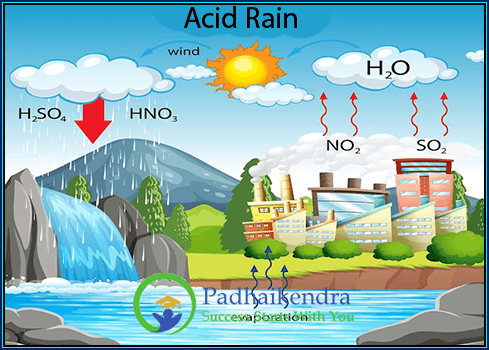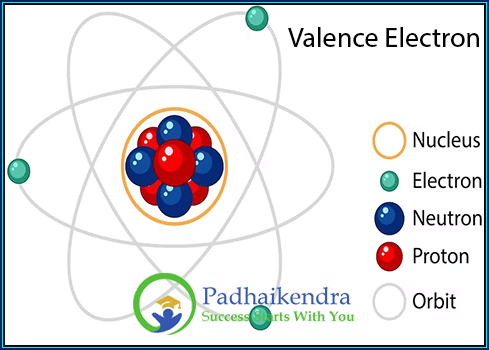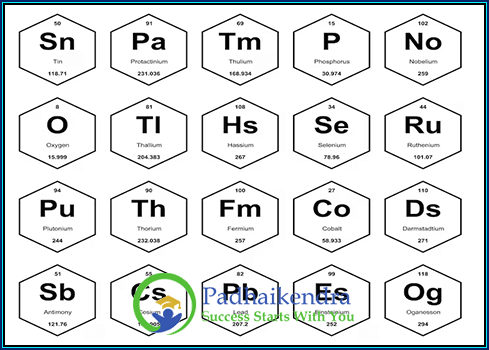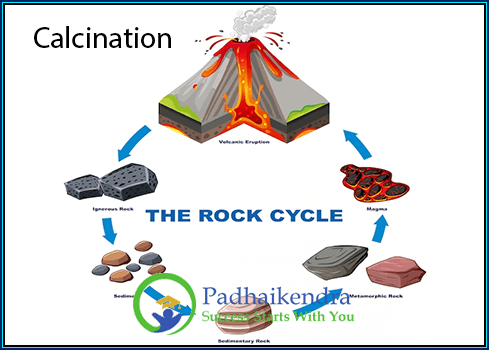Petroleum is a naturally occurring, yellow-to-black liquid found in geological formations beneath the Earth’s surface. It is a mixture of hydrocarbons, mainly alkanes, cycloalkanes, and aromatic hydrocarbons. Petroleum is believed to have been formed from the remains of marine organisms that died millions of years ago and were buried under sedimentary rock and subjected to heat and pressure over time. The process of converting organic matter into petroleum is called diagenesis, and it occurs in specific geological formations, known as source rocks. Petroleum is extracted from the Earth’s surface through drilling and refining processes, and it is used as a fuel in transportation, heating, and electricity generation, among other applications.
Origin of Petroleum
 Petroleum is a fossil fuel that is formed over millions of years from the remains of marine organisms such as plankton, algae, and bacteria that lived in ancient oceans. These organisms died and settled at the bottom of the ocean, where they were covered by layers of sediment and rock. Over time, heat and pressure from the layers above caused the organic material to transform into crude oil and natural gas. The process of petroleum formation is complex and involves several stages, including the decomposition of organic matter, migration of the oil and gas through rock layers, and the trapping of the oil and gas in underground reservoirs.
Petroleum is a fossil fuel that is formed over millions of years from the remains of marine organisms such as plankton, algae, and bacteria that lived in ancient oceans. These organisms died and settled at the bottom of the ocean, where they were covered by layers of sediment and rock. Over time, heat and pressure from the layers above caused the organic material to transform into crude oil and natural gas. The process of petroleum formation is complex and involves several stages, including the decomposition of organic matter, migration of the oil and gas through rock layers, and the trapping of the oil and gas in underground reservoirs.
Occurrence of Petroleum
Petroleum is formed from the remains of tiny plants and animals that died in ancient seas millions of years ago. Over time, these remains were buried under layers of sediment and rock. Heat and pressure from the earth’s crust changed some of these remains into petroleum. Petroleum deposits are usually found in underground reservoirs or pools in porous rock formations, such as sandstone. These reservoirs are often found beneath the ocean floor, but can also be found beneath land.
Exploration and Extraction
The search for petroleum reserves begins with prospecting, a meticulous process that involves geological surveys and advanced technologies. Once a potential reservoir is identified, drilling operations commence, penetrating deep into the Earth’s crust. Offshore drilling presents unique challenges, while onshore drilling offers its own set of considerations. Let’s dive into the fascinating world of exploration and extraction!
Refining and Processing
Crude oil, the raw form of petroleum, undergoes a complex refining process to transform it into a wide range of useful products. Distillation, the initial step, separates the various components of crude oil based on their boiling points. Additional processes, such as cracking, reforming, and alkylation, unlock the hidden potential of petroleum, resulting in valuable fuels, lubricants, and petrochemicals.
Petrochemical Industry
Petroleum plays a crucial role in the energy production sector. From powering vehicles and generating electricity to heating homes, petroleum fuels keep our world moving. Beyond fuels, petroleum also serves as the foundation for the petrochemical industry, providing the building blocks for countless everyday products. Plastics, synthetic fibers, fertilizers, and pharmaceuticals all owe their existence to the wonders of petroleum.
Environmental Impact and Sustainability
While petroleum brings immense benefits, it also poses environmental challenges. Oil spills, air pollution, and greenhouse gas emissions are among the concerns associated with its extraction and usage. However, the industry is actively seeking sustainable solutions. Innovations in clean technologies, renewable energy sources, and environmental practices are paving the way for a more responsible and sustainable petroleum industry.
Future of Petroleum
 As we look to the future, the petroleum industry is evolving. Emerging trends and technologies, such as advanced drilling techniques and enhanced oil recovery methods, are pushing the boundaries of oil extraction. However, diversifying energy sources and reducing dependence on petroleum are also gaining momentum. The quest for a sustainable energy future goes hand in hand with the ongoing evolution of the petroleum industry.
As we look to the future, the petroleum industry is evolving. Emerging trends and technologies, such as advanced drilling techniques and enhanced oil recovery methods, are pushing the boundaries of oil extraction. However, diversifying energy sources and reducing dependence on petroleum are also gaining momentum. The quest for a sustainable energy future goes hand in hand with the ongoing evolution of the petroleum industry.
Petroleum is undeniably a powerful resource that has shaped our modern world. From the moment of its discovery to its transformative refining process and diverse applications, petroleum continues to be a driving force in our daily lives. As we move forward, it is essential to balance the benefits of petroleum with environmental responsibility and explore alternative energy sources. Together, we can embrace a sustainable future while acknowledging the enduring power of petroleum.





